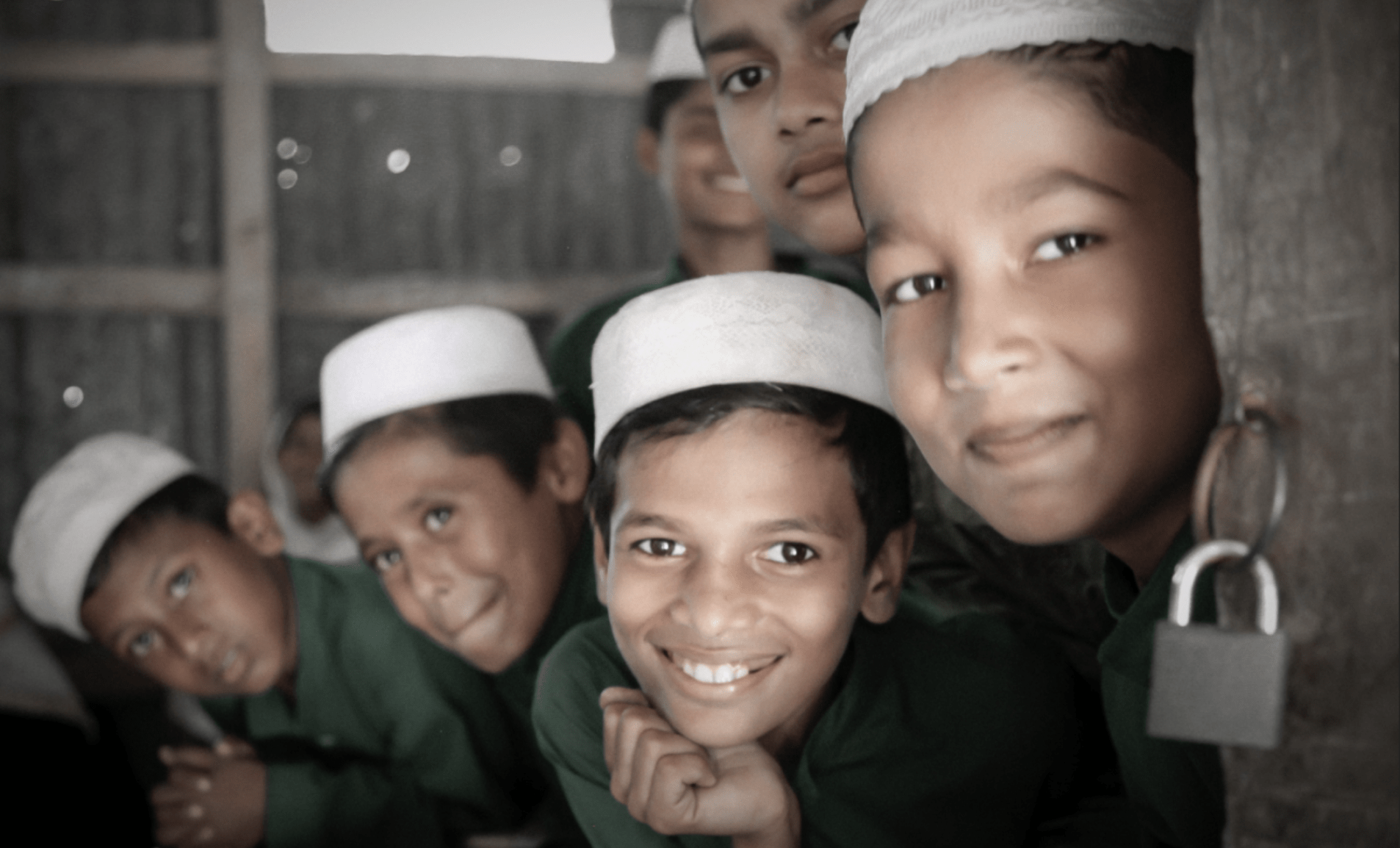The roots of violence against women run deep in Bangladesh, where a national survey has indicated that half of all women suffer some form of violence in their lifetimes.
Growing up in the southern city of Barisal, Mohammad Rabiul Hassan (17) saw the age-old attitudes that drive violence against women at school, with friends, and even in his own home.
“When Dad brought us all fish for dinner, Mum always made sure I got the best bits. She said ‘You, son, you will take care of us in the future, so you need to sharpen up your brain.’ My little sister, she always got the leftovers. To her, Mum would say, ‘You’ll be leaving us for your in-laws soon, so you won’t be here to take care of us.’
“Also, I got to go to the village fair when it was in town, and I went to a good school,” Hassan recalls. “All this made me feel pretty good about myself. I thought, ‘It’s great to be a boy.’
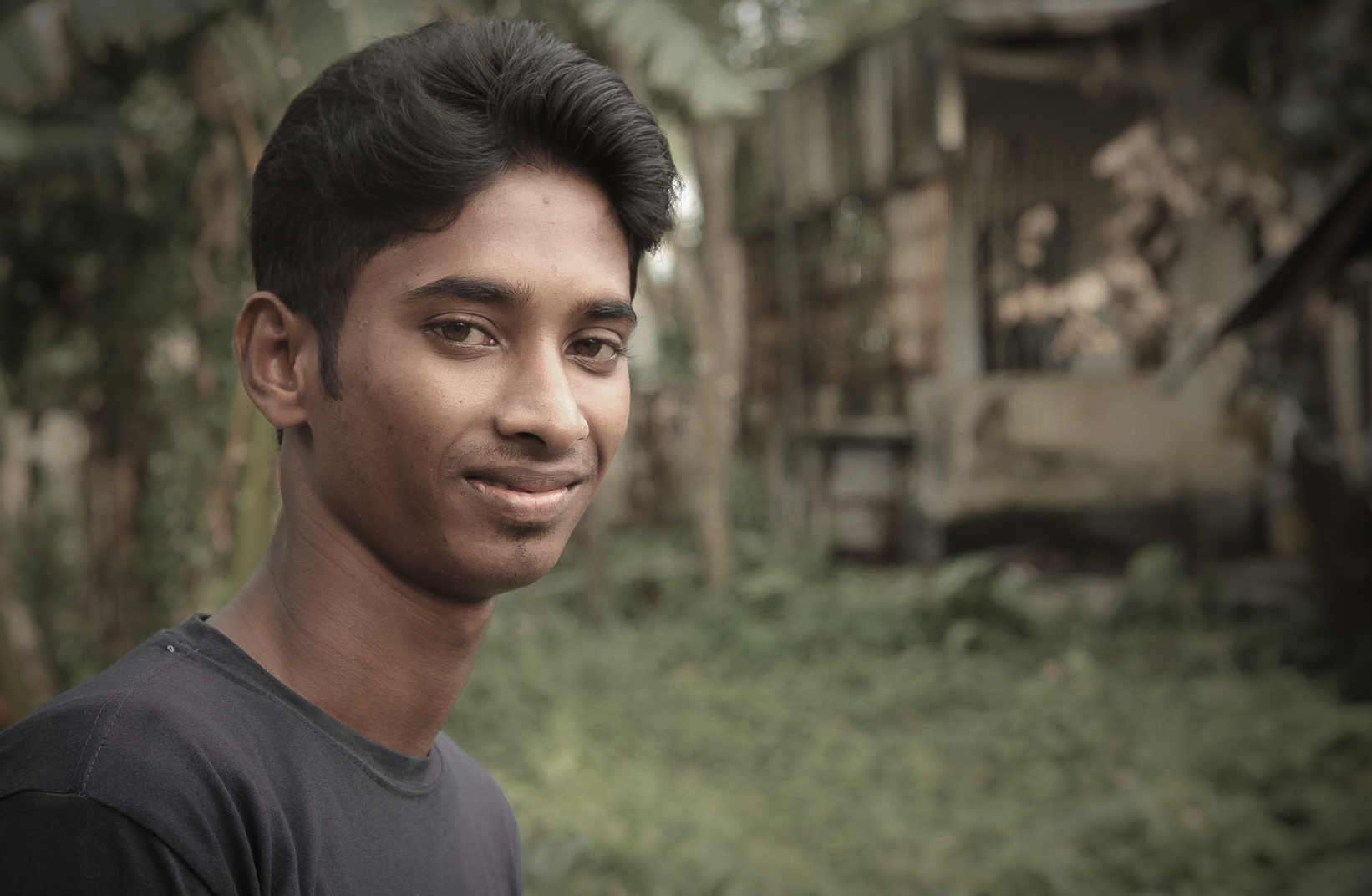
Mohammad Rabiul Hassan. Photo: Taylor/UNFPA
Against all odds
In parts of South Asia, including Bangladesh, sexual harassment is often euphemistically called ‘eve teasing’.
“It’s a kind of mental torture,” says Farzana Islam Oishee (14), a student in Barisal. “And when girls complain, they’re often the ones who get blamed.”
Hassan used to join his friends in tormenting girls as they walked home from school. “I’d encourage [my friends]. I tried to join in, and I’d never ask them to stop,” he says.
“Whilst exact data is hard to come by, it’s clear that sexual harassment affects far too many girls across the country,” explains Munir Hussain, an Adolescent and Youth Programme Officer for the United Nations Population Fund, UNFPA.
“Many people see sexual harassment as normal, so victims can end up blaming themselves and feeling they have nowhere to turn. The scars may not be immediately visible, but they’re deep, harsh and long-lasting.”
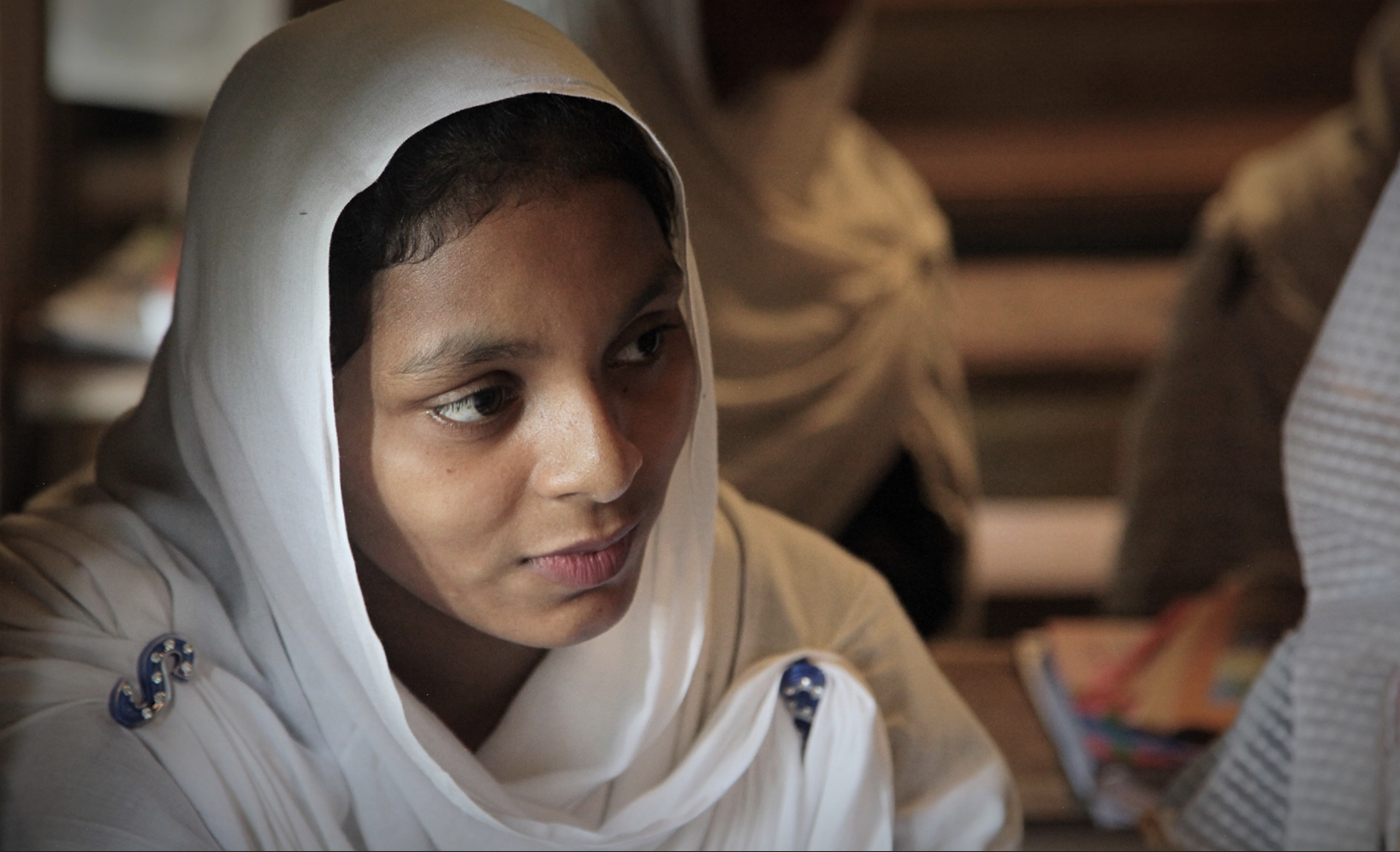
A girl in class at the Modhobadda Noor-e-Dakhil madrassa in Patuakhali. Photo: Taylor/UNFPA
But it’s not just discrimination and harassment that pose a threat. Child marriage, though decreasing, still robs three out of every five girls of their futures in Bangladesh, and almost one in five girls are married off by just 15 years of age.
“When girls go into class 8 or 9 (aged 14 or 15) their parents start fixing up marriages,” Oishee explains. “Then they’re sent off to their husbands’ families, where they can be beaten, among other things. Their husbands might abandon them, so some girls even kill themselves. We’ve got to let people know about this, so we don’t become victims ourselves.”
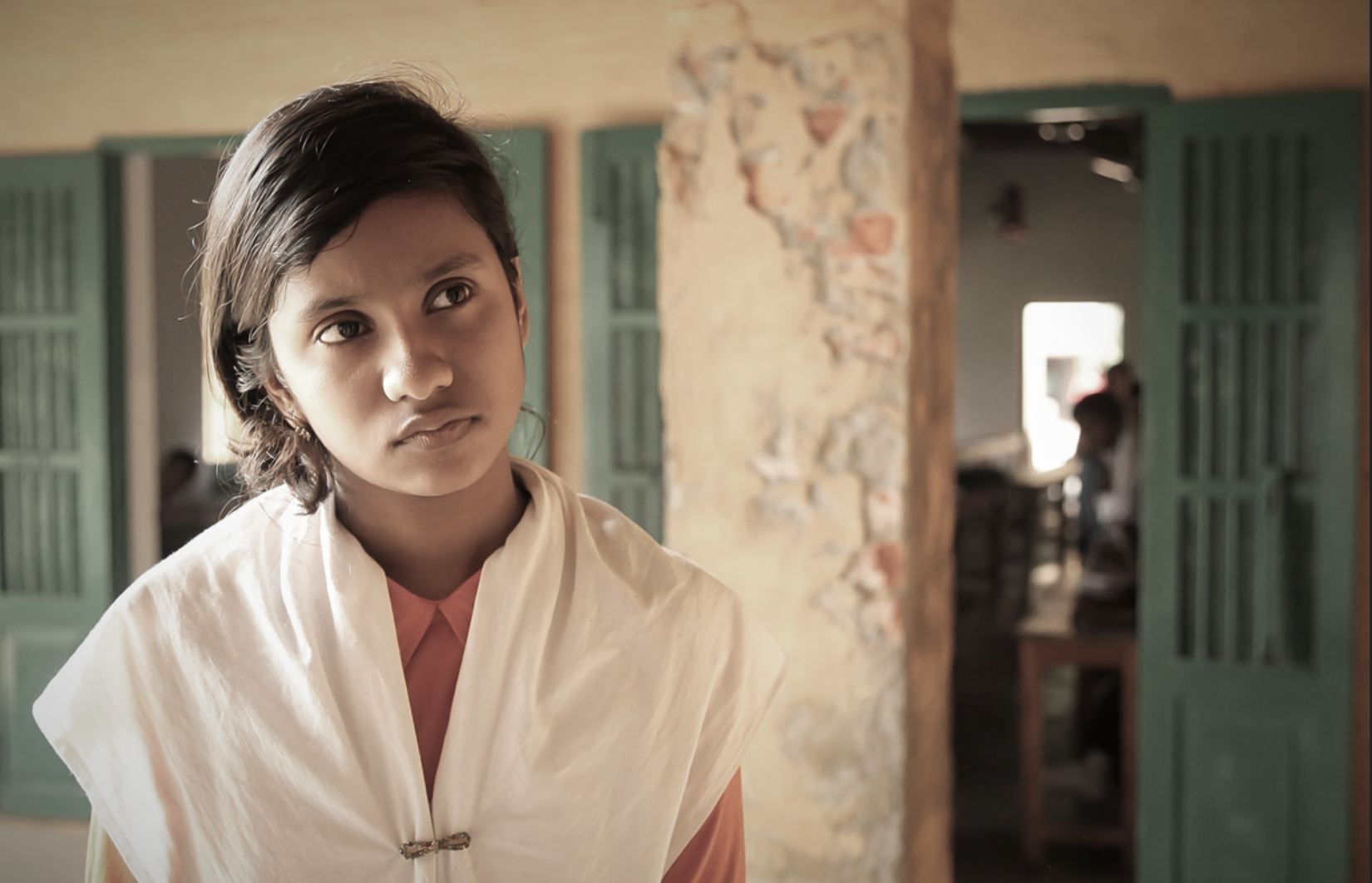
Farzana Islam Oishee at her school in Barisal. Photo: Taylor/UNFPA
Generation Breakthrough
Generation Breakthrough, a five-year project run by UNFPA, with the Government of Bangladesh and Plan International, with support from the Embassy of the Kingdom of the Netherlands in Bangladesh, helps adolescents build healthy. rewarding and respectful relationships.
Hassan started going to a Generation Breakthrough-supported club when he was just 15.
“I learned a lot through the exercises, games and training. My mind changed, and I started pushing my parents to treat my sister equally at home. I said to them, ‘Mum, Dad, just as I can bring in money for us, so can she if you give her the same chances I have.”
“I started doing things differently with my friends and neighbours as well,” adds Hassan. “When a friend eve-teased a girl on the way to school, I asked him, ‘What if she was your sister?’ After a while he understood, and he said he wouldn’t [harass girls] anymore.”
Similarly, in the conservative, far-southern district of Barguna, Mohammad Saiful Islam (18) has changed the way he treats women since joining a local club.
“When I learnt that it wasn’t God, but society that divided the work between men and women, I started helping my mum at home. I chop vegetables, bring jars of water home and wash clothes.”
“I’m more confident and I know how to end prejudice,” adds Islam. “I even stopped my dad from marrying off my sister. He shouted at me, but I threatened to call the police, and I told him that I need to stand up to things like this.”
As of August 2017, Generation Breakthrough covers 150 adolescent clubs, 300 schools and 50 madrassas (or religious schools) across four districts - Dhaka, Patuakhali, Barisal and Barguna. The project, which aims to reach around 140,000 adolescents, also uses street drama, social media, competitions and community outreach to engage young people.
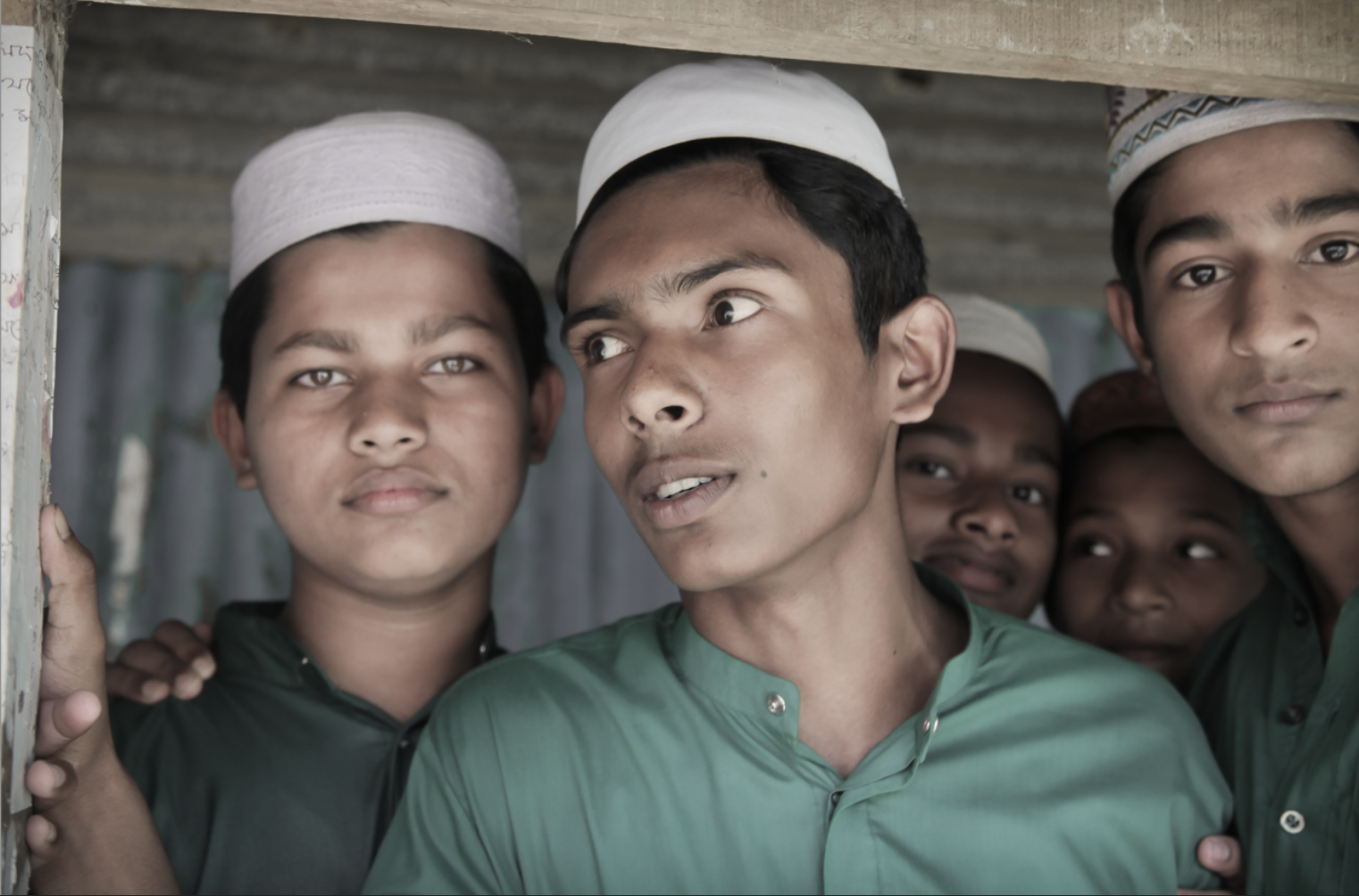
Boys at the Modhobadda Noor-e-Dakhil madrassa in Patuakhali. Photo: Taylor/UNFPA
Life lessons
Targeting students between 12 and 14 years, the two-year Gender Equity Movement in Schools (GEMS) module helps adolescents in Generation Breakthrough-supported schools build respect for themselves and others.
“When it comes to violence against women, we see it everywhere,” says Mohammad Nurul Ameen, a teacher at the Generation Breakthrough-supported Modhobadda Noor-e-Dakhil madrassa in Patuakhali. “GEMS fits with [Islamic jurisprudence] and it shows our students that no violence is acceptable, no matter how small the incident. It makes it clear that everyone must always say ‘no.’”
GEMS was approved for use in all schools in Bangladesh in 2015, and according to Professor S. M. Wahiduzzaman, Director General of the Directorate of Secondary and Higher Education in Bangladesh’s Ministry of Education, the project “needs to be expanded to all other 60 districts across the country.”
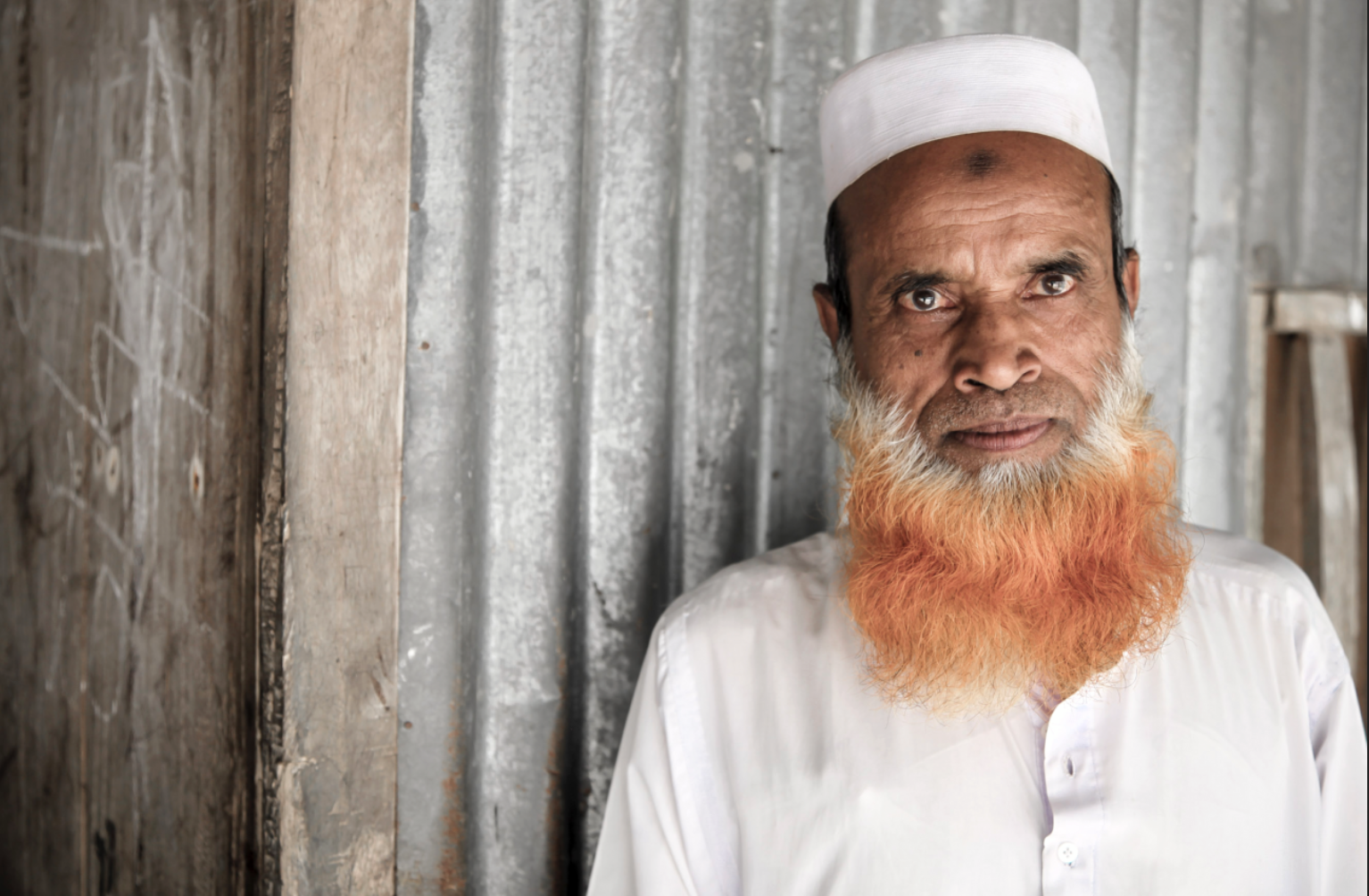
Mohammad Nurul Ameen, a teacher at the Modhobadda Noor-e-Dakhil madrassa in Patuakhali. Photo: Taylor/UNFPA
Despite progress towards establishing comprehensive sexuality education in schools, a lack of access to sexual and reproductive health services and information, combined with cultural norms that encourage early pregnancy, contributes to Bangladesh having the highest rate of adolescent pregnancy in South Asia.
Ignorance increases the risk of sexually transmitted infection, and for many young people like Hassan, it also causes needless shame and confusion.
“When I first had wet dreams, I was got really scared and embarrassed. I couldn’t talk with anyone, not even my brothers, parents or friends, but through the club I saw that it isn’t a disease, it’s natural, and there’s nothing to be afraid of.”
GEMS has also helped girls improve their menstrual hygiene and talk openly about the trials and changes affecting them, explains Anamika Byapari, an assistant high school teacher in Barisal.
“Earlier, girls used a cloth for menstruation, but now they use better, hygienic sanitary napkins. And on issues that upset them like eve-teasing, they talk more openly with their families and friends.”
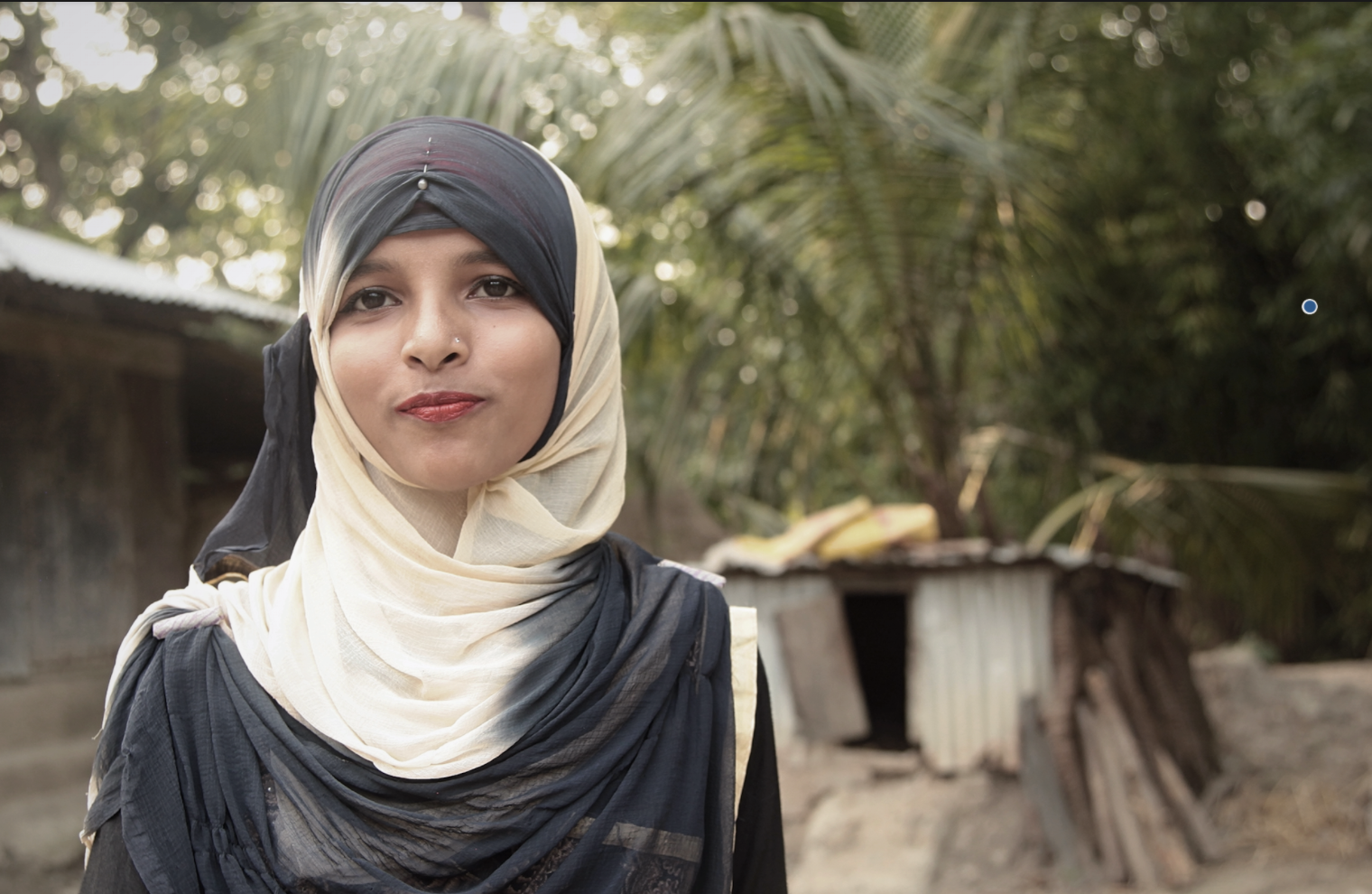
Zakia Sultana (14) tours remote villages with young actors and performers to raise awareness of the dangers of child marriage. Photo: Taylor/UNFPA
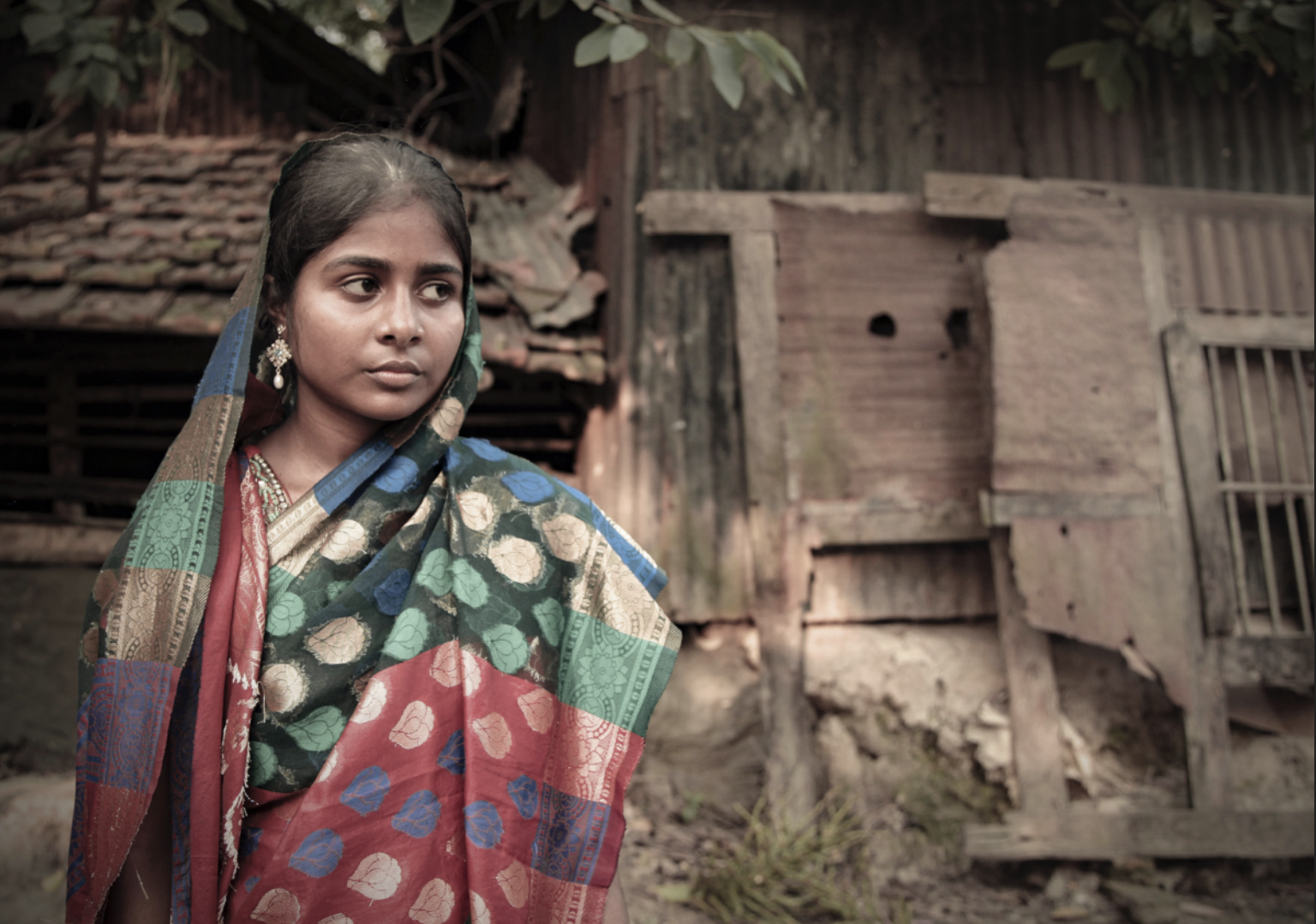
Another young performer. Photo: Taylor/UNFPA
The Dutch Ambassador to Bangladesh, Leoni Margaretha Cuelenaere, supports the role of GEMs and the Generation Breakthrough project in replacing confusion with empowerment.
“Low teenage pregnancy in the Netherlands is a direct result of educational programs and reproductive services. The Dutch approach focuses on the relation between sexuality and pregnancy. It empowers girls and teaches respect for each other.”
“I believe that sexuality education is about providing information and services at a critical time in their lives. This is why I am happy to support Generation Breakthrough. This project assists young people to develop a healthy understanding of themselves and fulfilling relationships with others.”
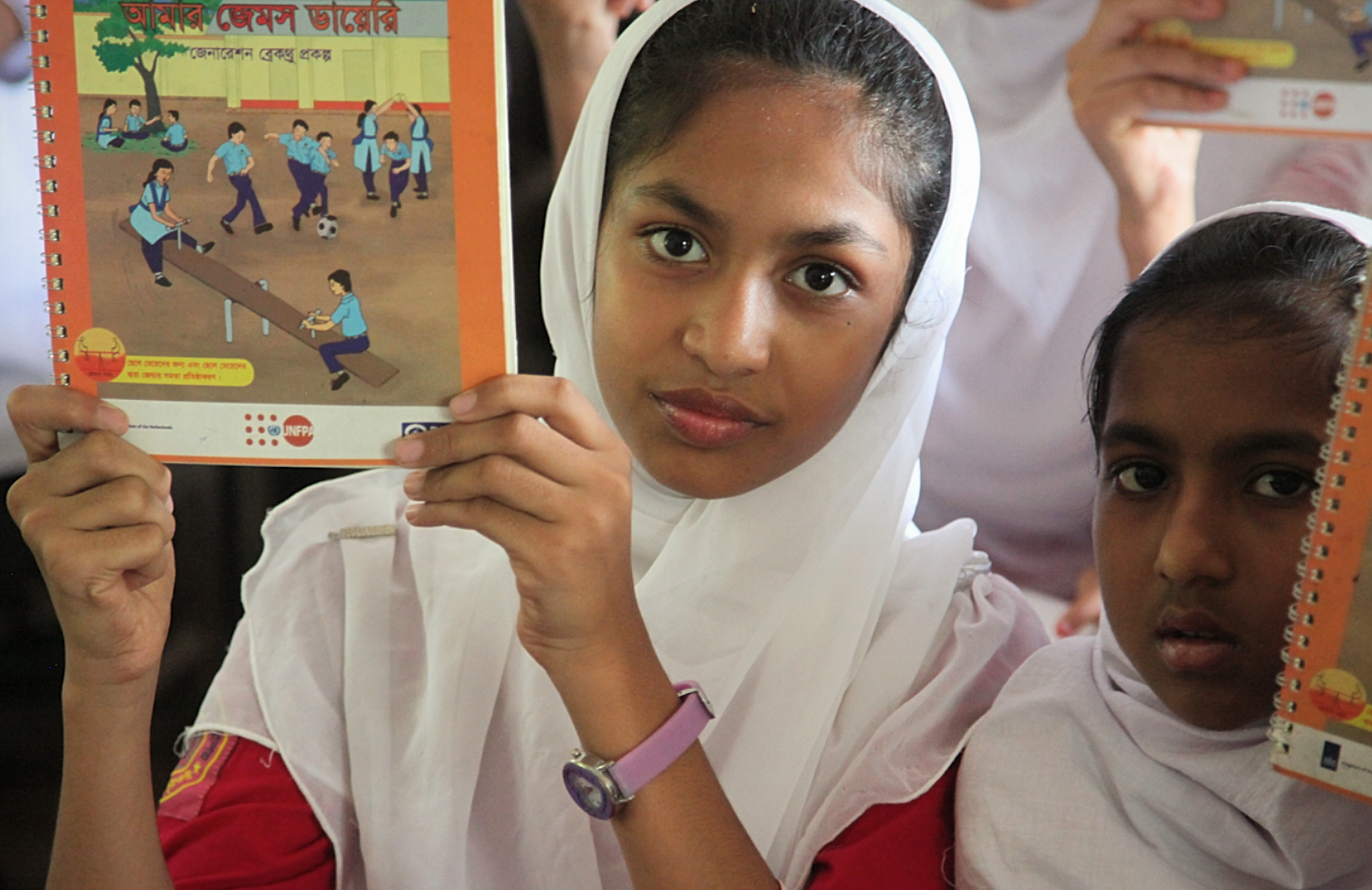
Girls at school in Barisal hold up a text book from the Gender Equity in Schools Curriculum. Photo: Matthew Taylor / UNFPA
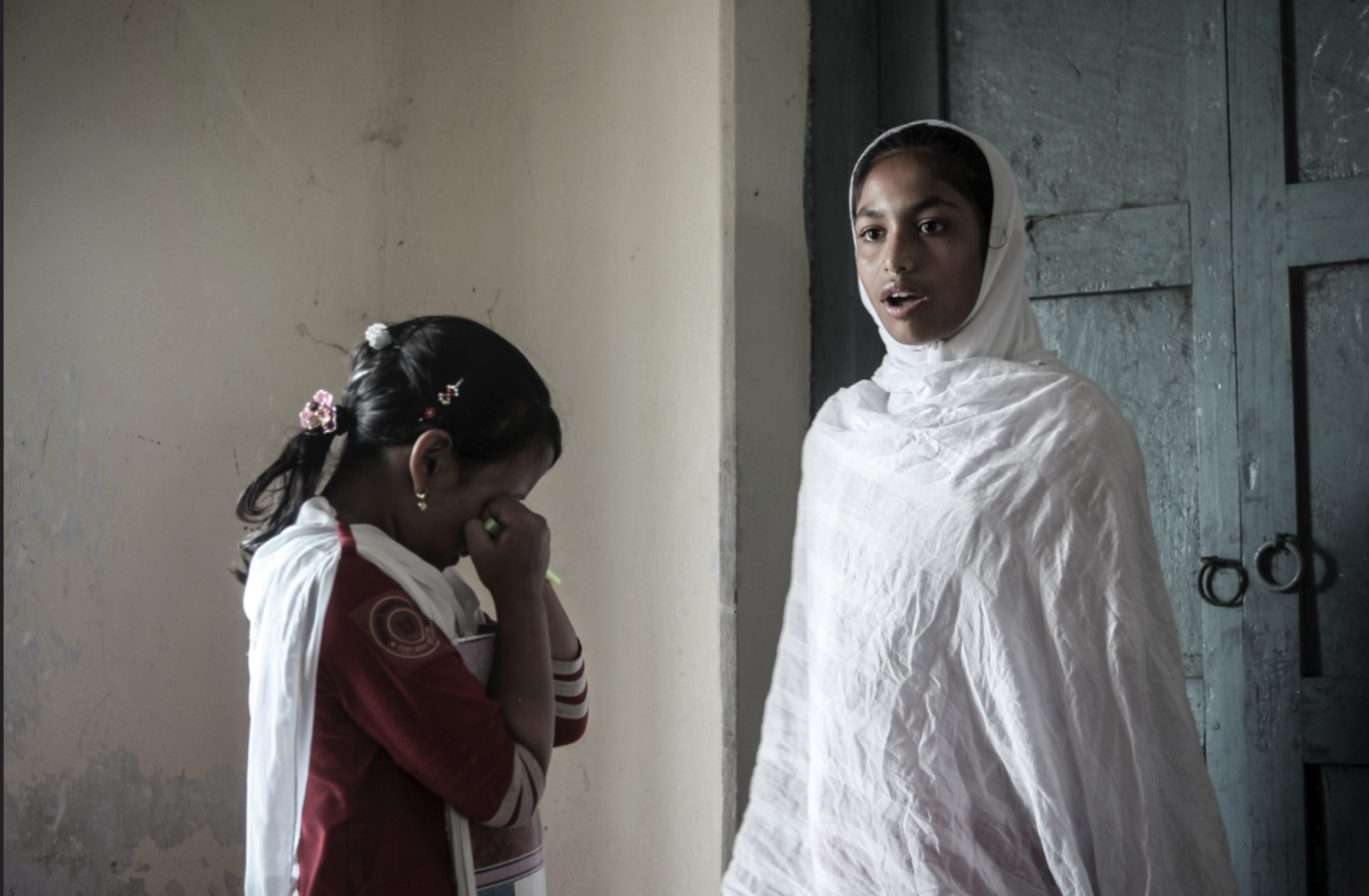
Girls act in a role play that explores the roots of domestic violence at a school in Patuakhali. Photo: Taylor/UNFPA
‘Dosh Unisher Mor’ (Crossroads at 10 to 19) is a 100-episode radio show that aired on Friday nights on Radio Today, Bangladesh’s most popular commercial station, and through community radio. Targeting adolescents, the show covered issues like body image, masculinity, child marriage and contraception, with dramas, expert opinion and celebrities speaking up.
“We took calls from listeners on issues that were brought out in the show,” notes Fokhrul Islam Roni, a community radio DJ in Barguna. “We took feedback, and talked through the topics that affected them.”
For youth seeking more information, a national helpline now runs seven days a week. Counsellors affiliated with the University of Dhaka’s Department of Counselling and Educational Psychology offer advice and referral services related to sexual and reproductive health, gender based violence, mental health and general health issues.
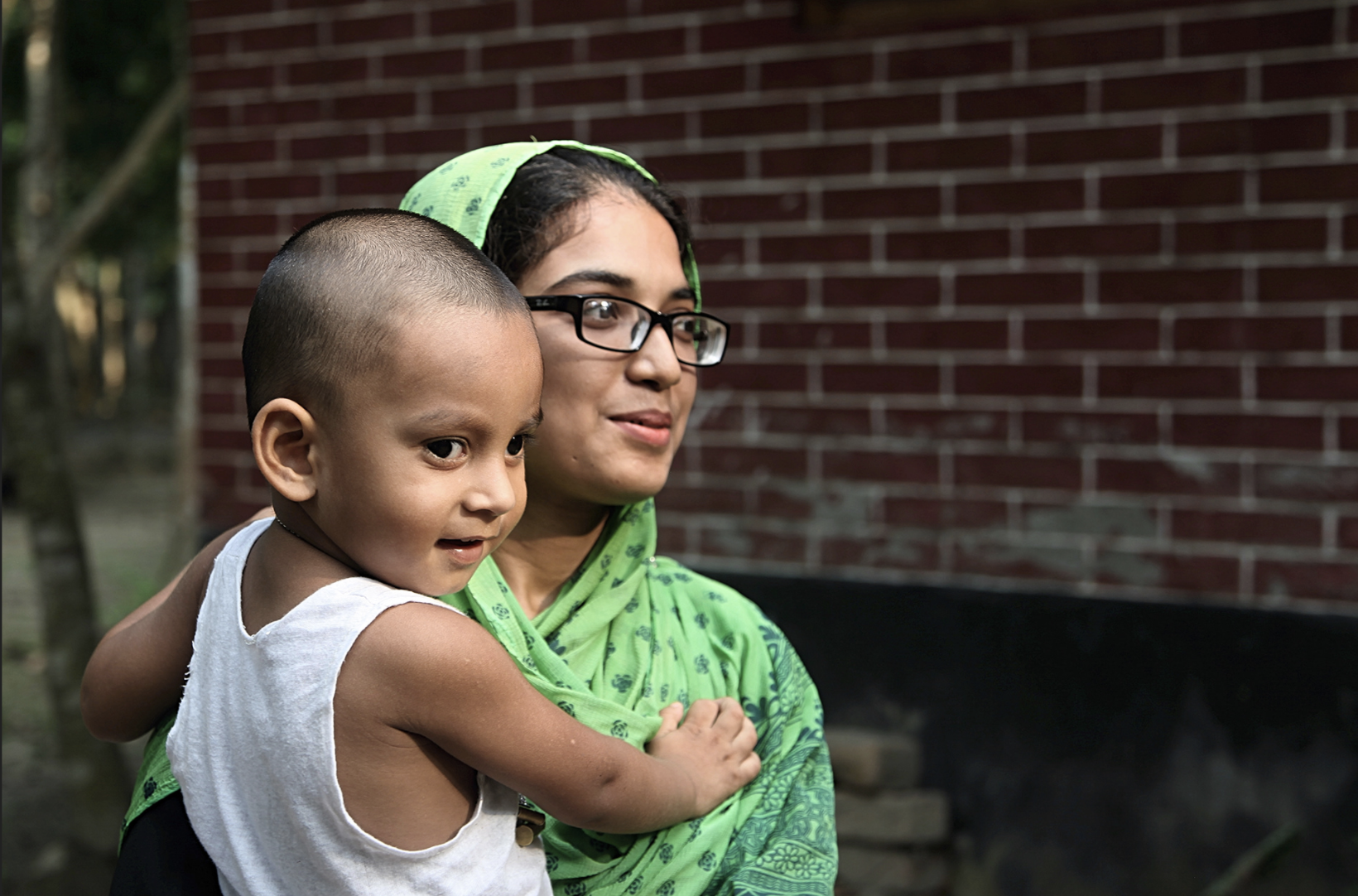
A mother and child in the southern district of Barguna. Photo: Taylor/UNFPA
Changing lives, changing futures
“Generation Breakthrough helps adolescents transcend the cycles of inequality and discrimination that we know fuels violence against women and girls,” explains Eshani Ruwanpura, Adolescent and Youth Specialist with UNFPA in Bangladesh and manager of the Generation Breakthrough project. “We aim to get them while they’re young, before damaging gender norms become deeply entrenched and before bias, prejudice and violence set in.”
“With around 20% of the population of Bangladesh below the age of 24, there is a huge opportunity for this generation to build a happier, healthier and violence-free future” says Iori Kato, UNFPA’s Acting Representative in Bangladesh. “This all fits with the vision laid out in the 2030 Agenda for Sustainable Development - of leaving no one behind - as well as the International Conference on Population and Development’s Programme of Action which has long served as a foundation for UNFPA’s work around the world.”
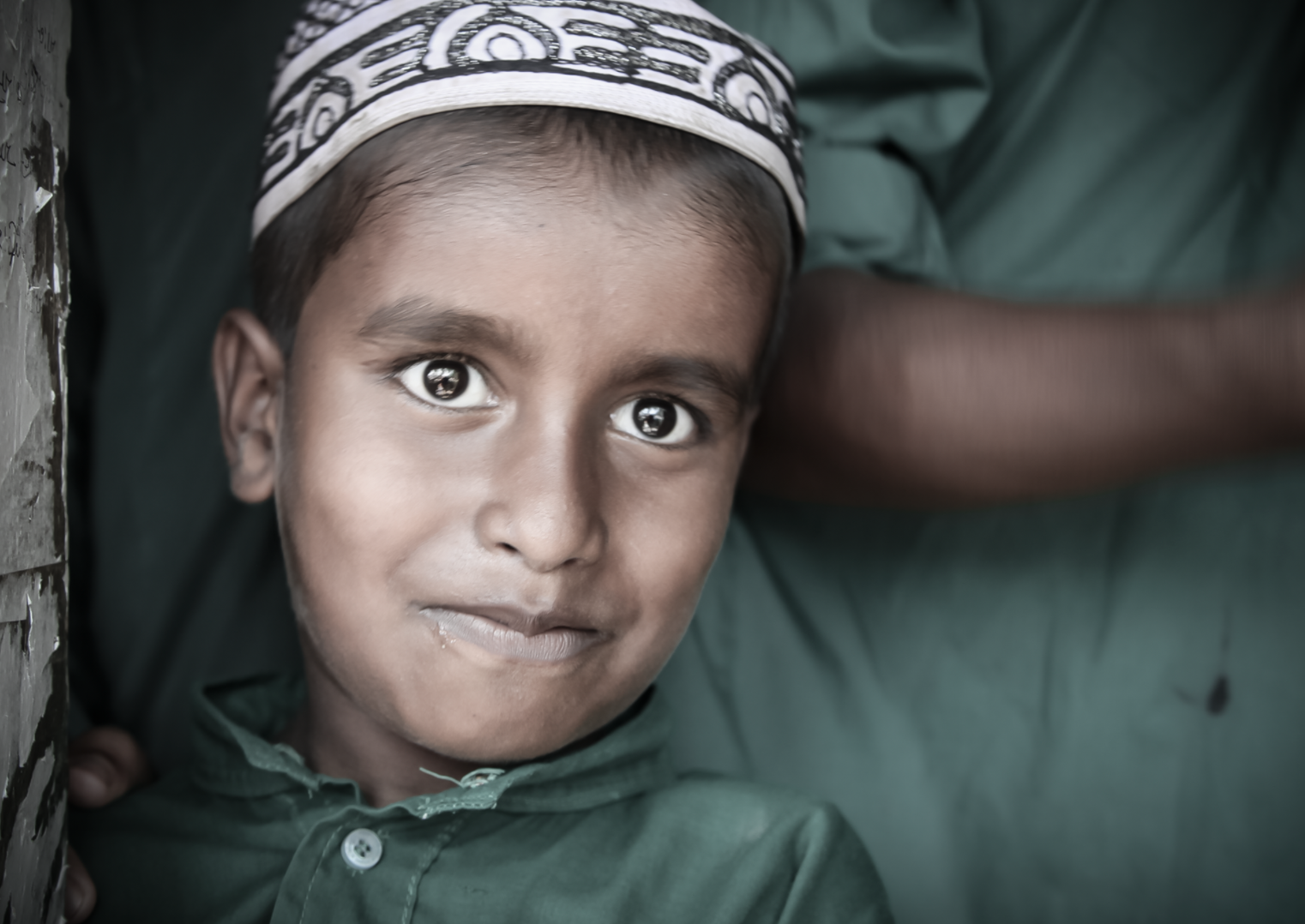
A student at the Modhobadda Noor-e-Dakhil madrassa in Patuakhali. Photo: Matthew Taylor / UNFPA
Back at the adolescents’ club in Barisal, Hassan is a now team leader, and is stepping up his campaign for change at home, school and in the community.
"After better understanding myself and my life, I broke free of all these wrong beliefs. So I felt far more relaxed for it,” he concludes. “Many of us here are educated, but there are many who aren’t, and we need to bring them to the club."
"Society created [gender discrimination] so I want society to get rid of it. Girls can do anything boys can do, so if I become a doctor or an engineer, of course a girl can too.”

